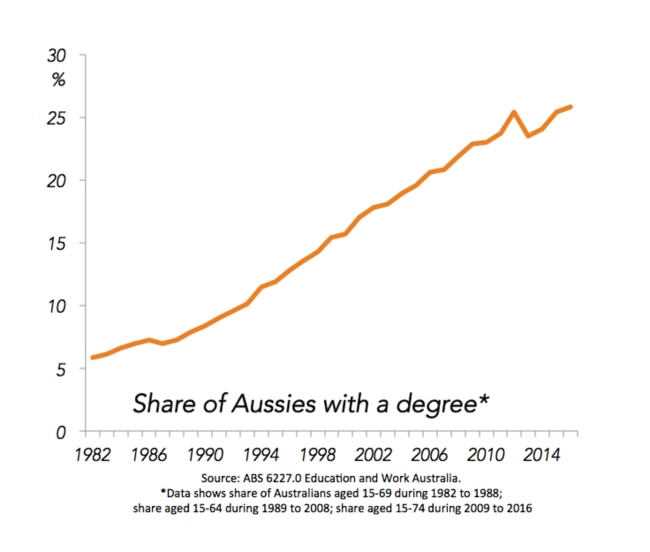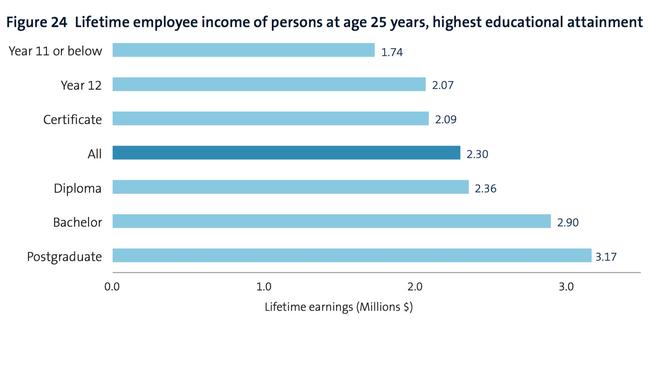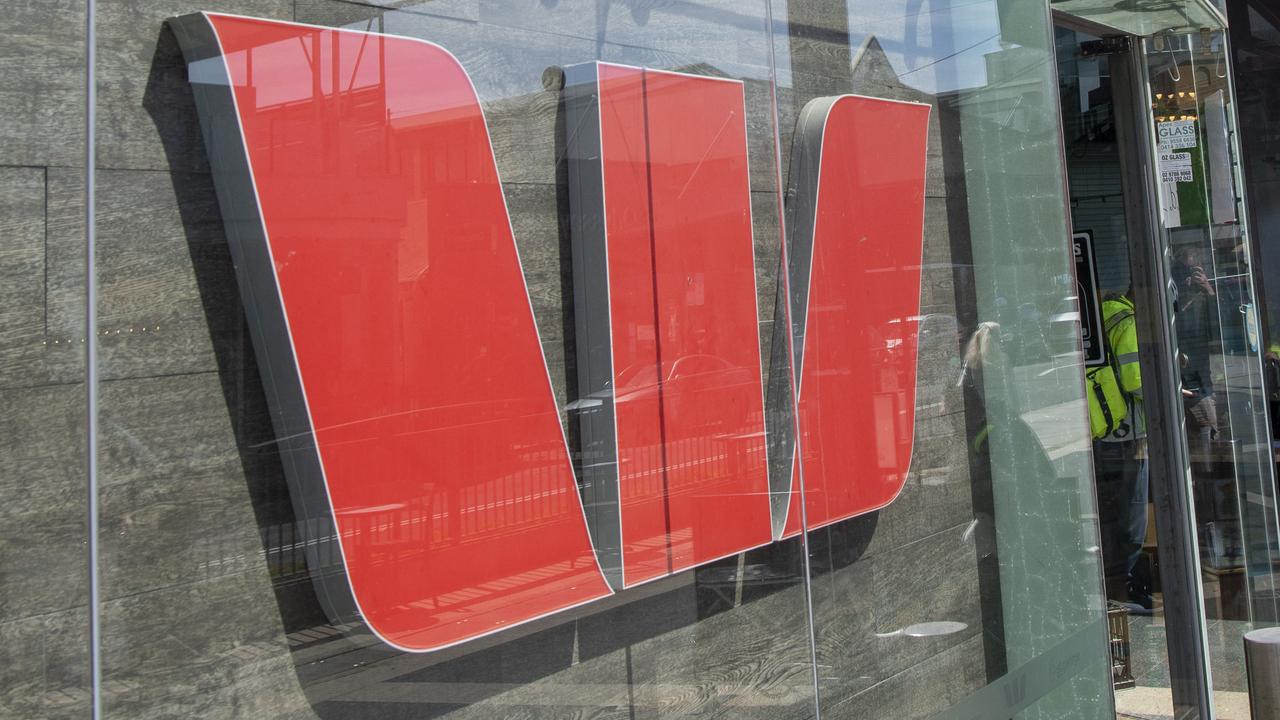Is going to uni a waste of everyone’s time and money?
AUSSIES are flocking to university in record numbers. That sounds good, but we’re ignoring some awkward facts.
Careers
Don't miss out on the headlines from Careers. Followed categories will be added to My News.
AUSTRALIANS are more qualified than ever. A record number of Australians now have a bachelor’s degree, masters or PhD. But a dangerous idea is out: Degrees might be a big fat waste of time and money.
Thirty years ago you didn’t need a degree to be a journalist, for example. Now? Most job ads demand a degree and plenty of the people applying have taken a masters degree, so they look even more qualified than the competition.
The same “degree inflation” applies in a huge range of fields.
IS A DEGREE JUST A PIECE OF PAPER?
The idea is this: you don’t actually learn much at university. Under this idea, university is a way of showing off that you’re good. It’s like the peacock’s tail — not useful in itself, just a big signal that you’re hot stuff.
Is university just signalling? If it is, it would explain why it doesn’t seem to matter that you forget a lot of what you learned — and perhaps why employers of graduates are always complaining their recruits don’t have any valuable skills
If the signalling theory is right, we would, as a society, be better off making people spend less time in uni. But the reality is the opposite — we are sending more and more people to uni.

THE BACKLASH
As people work harder and harder for qualifications, a backlash is brewing.
Some very powerful businesses have stopped requiring a degree. Professional services firm EY is one. In the UK it no longer looks at academic qualifications in its entry criteria.
Google is also expanding its ranks of the degree-less, according to its head of hiring. Those firms think they can get good value from people without degrees.
US entrepreneur Peter Thiel is famous for questioning the benefit of higher education. He pays scholarships of $100,000 — called Thiel Fellowhips — to brilliant young people in return for dropping out of uni and becoming entrepreneurs instead.
YOUR USELESS DEGREE ISN’T REALLY USELESS
Now, that doesn’t mean you shouldn’t go to university. Even if it is a waste of time in some ways, most jobs still require a degree. Going to uni is still very much worthwhile for most people.
The data is very clear — people with a Bachelor’s degree will earn $2.9 million over their lifetime compared to $2.07 million for people who finished year 12 without going to uni.

This can’t be used as proof that uni makes you more productive though.
If university is just signalling these people would have been just as useful in the workplace if they hadn’t gone to uni. (And maybe even more useful, because they’d have extra experience instead of a qualification.)
It also implies that plenty of people who didn’t go to uni would do even better at those jobs than the people with degrees. After all, going to university is still mostly for wealthier people, despite the way the HECS scheme has made access way more widely available. (People who are born to rich and well-educated parents are the ones who tend to end up at uni.)
IS THE DANGEROUS IDEA RIGHT?
But the problem remains this. We don’t know for sure if this big idea is right. Do people really learn at uni or not? I asked the man who invented the HECS/HELP system, Professor Bruce Chapman, what the evidence had to say.
“We just don’t know,” Chapman said. He has trawled through hundreds of studies to try to figure out if university is mostly learning or mostly just signalling. “We don’t have a good measure for it.”
Some degrees are more practical than others, Chapman said, for example, dentistry: “Would you want an accountant pulling out your teeth?”
Philosophy degrees, he said, are different. They may be more of a way of showing that you are able to think clearly and obey the rules and requirements of a university environment for three years.
Ultimately, Chapman reckons uni is most likely to be a mix of learning and signalling. “If I had to guess, I’d say 50:50.”
Other experts, like Professor John Quiggin of the University of Queensland, disagree, saying the proof is out there and university mostly builds skills.
Debate will continue on whether or not sending more and more Australians to university is a good investment. But one thing most experts agree on is that a very different kind of education is a guaranteed winner. The advantages of early childhood education are enormous, and can last for a lifetime.
One American study found the return on early childhood interventions is $10 for every $1 invested. And the benefits go to everyone, not just the people who are lucky enough to go to uni.
So, maybe, as a society we should worry more about whether Australians go to kindergarten, rather than whether they go to uni.
Jason Murphy is an economist. He publishes the blog Thomas The Thinkengine. Follow Jason on Twitter @Jasemurphy
Originally published as Is going to uni a waste of everyone’s time and money?



